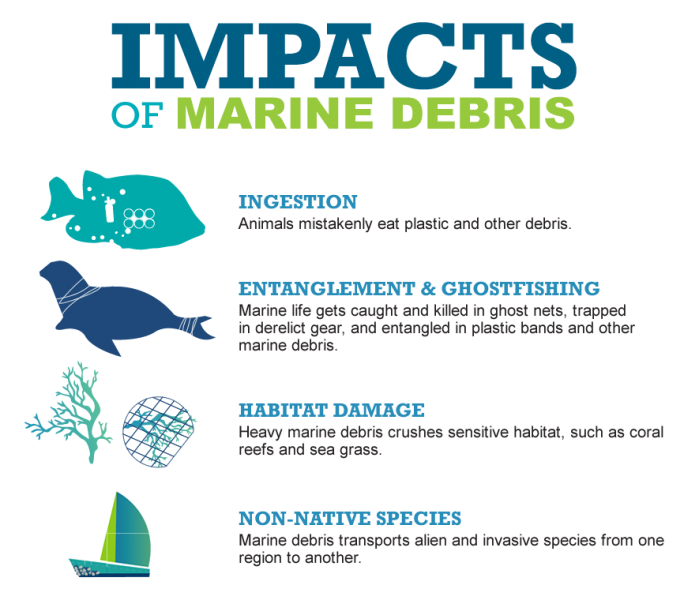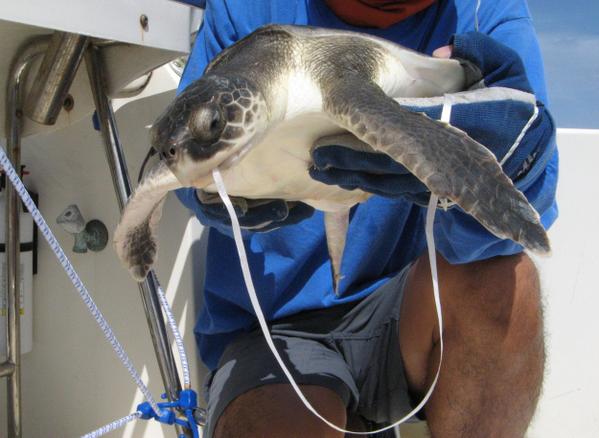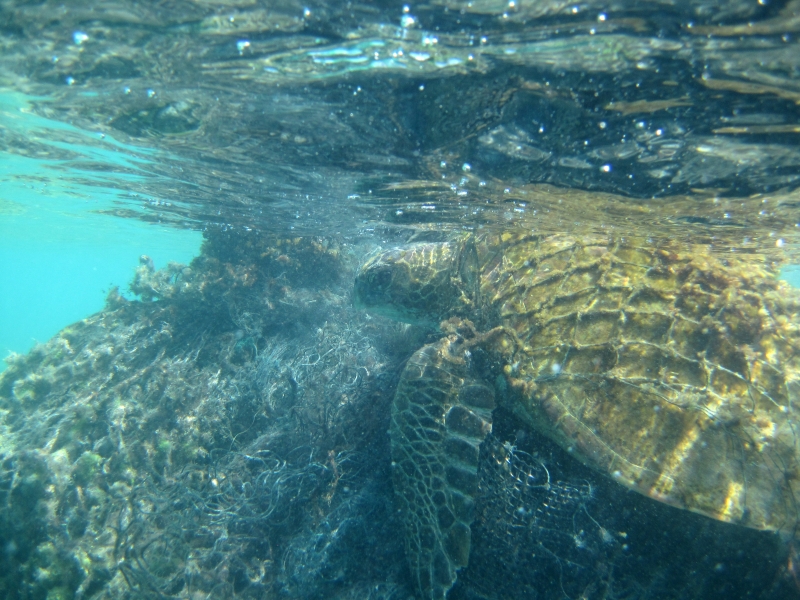A plastic bag may look flimsy, but in a fight against a sea turtle, it often wins. Unfortunately, the marine debris that we find floating in our oceans and waterways all too often impacts marine life.

There are many ways that marine debris can impact marine animals. For instance, the accidental ingestion of debris is a big problem! Animals may unintentionally eat debris along with their meal, or intentionally ingest trash due to its resemblance to real food. For example, a plastic bag can win a fight with a sea turtle using its resemblance to a jellyfish when it’s floating in the water. Jellyfish are a favorite snack of sea turtles and the plastic bag is often swallowed before the turtle knows the difference. Since plastic is not real food, the turtle is not getting the nutrients it needs, and once that plastic is in its gut, it can sometimes get stuck there, making the turtle very sick. All sea turtle species eat debris and unfortunately, turtles aren’t the only animals that mistake plastic for food. Many marine animals ingest marine debris. This is an especially big problem in seabirds. A recent study by Wilcox et al. estimated that 90% of seabirds have ingested plastic and predicted that number would increase substantially by 2050.

Unfortunately, the impact of marine debris doesn’t stop there. Entanglement and ghostfishing also pose a threat. Marine life can get entangled in marine debris such as plastic bands or fishing line. For an animal, this is a situation that can range from slightly uncomfortable to lethal. Derelict fishing gear such as nets and crab pots can also be a big problem. These materials can continue to capture marine life but no longer have a person responsible for setting captured animals free. This is called “ghostfishing.”

Marine debris can also harm animals indirectly by impacting their habitat. Large or heavy debris can smother or crush sensitive habitats, such as coral reefs and sea grass. Non-native species can also hitch a ride on marine debris from one region to another. This might simply sound like a convenient way to travel, but invasive species can wreak havoc on an ecosystem by depleting food sources or destroying habitat.
Don’t like the sound of all this? Let’s change it! It might seem hopeless, but it’s not. There are many ways to reduce this threat, such as improving waste management techniques and disposing of trash items properly, but we need your help! Remember to reduce, reuse, and recycle to decrease the amount of trash that is adding to our marine debris problem. Help with a cleanup in your area—the 30th International Coastal Cleanup is Saturday, September 19th, and there are cleanup locations all over the country. If everyone made an effort, think of the difference it would make! It’s up to us.
